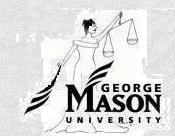|
Mary Jane McIlwain
Complementarity, Synthesis |
 |
Home Collaboration, and Overlay |
|
|||||||||||
| Vitae | Goal Statements | Coursework | Analytical Thinking | Professional Experiences | Research & Dissertation Planning | Documentation of Academic & Professional Growth | |||||
Professional Goals
I
fully embrace Vygotsky’s learning theory and the impact of metalinguistic
awareness on early reading and writing and my awareness of research and craftsmanship
in the area of literacy continues to evolve.
My interests in literacy
channeled me into the world of resource specialist, which led to another
epiphany regarding bringing the research into classroom practice. Synthesizing the research and transforming it
into a consistent language arts program within a single school can be a very
difficult task. There are many variables
that can influence the efficiency of coaching, consulting and collaborating
among colleagues and parents in the school community. Inconsistent levels of flexibility, reflectiveness,
knowledge of cognitive development, and efficacy impact the consistent delivery
of quality, research-based language arts programs in classrooms and homes within
a school. I am now asking myself how the
different educational roles—parent, classroom teacher, education specialist,
administrator, and educational consultant—can come together in a less
hierarchical structure at the local site level, thus creating a team; and if creating
this more integrated relationship among these roles through school based
research will correlate to expediting a more consistent use of research-based
practices in homes and classrooms within a school.
My interest is to tie continued research in literacy instruction to classroom practice via effective leadership structures involving educators and parents at the local/community level. A doctorate degree in educational leadership will build on the knowledge I have developed through my work experience. It will also strengthen my ability to work within any and all the aforementioned leadership roles in the education configuration. A minor in literacy will allow me to continue studying literacy issues (i.e. linking oral language to the concept of sentence, punctuation, and story in the primary grades; the impact of differentiated word study in conjunction with guided reading across all grade levels; shifting the coaching focus to mediated think alouds to teach for comprehension strategies during guided reading sessions thus developing metacognitive abilities in middle to upper grade elementary students; using multimedia presentations to connect content areas and develop oral language in the upper elementary grades; empowering parents with an understanding of best practices). Informed leadership could forge a direct path between research and practice in order to facilitate and sustain momentum in the reform of literacy instruction. My goal is to become one of those leaders—whether as a teacher, specialist, principal, private consultant/advocate, or an academic—by conducting high quality teacher research at the school level and sharing the findings within the school community and with other institutions via print and technological communications.
The philosophies that
drive the doctoral programs in leadership and literacy at